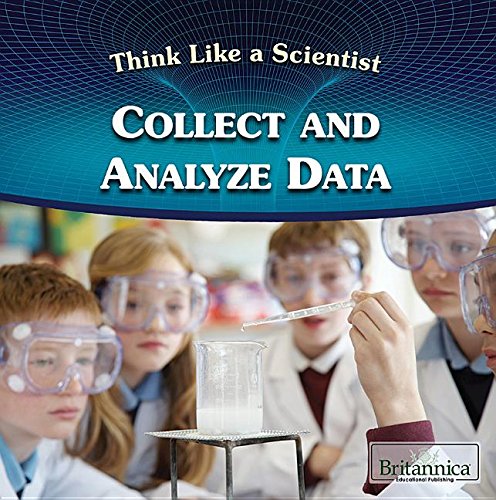-
How Do We Apply Science?
Dru Hunter
Library Binding (Creative Co, July 15, 2015)"A narration of the origins, advancements, and future of the applied sciences, including engineering and medicine, and the ways in which scientists utilize the scientific method to explore questions"--
-
What Is Out There?
Dru Hunter
Library Binding (Creative Co, July 15, 2015)"A narration of the origins, advancements, and future of the earth and space sciences, including astronomy and geology, and the ways in which scientists utilize the scientific method to explore questions"--
-
What Is the Reason?
Dru Hunter
Library Binding (Creative Co, July 15, 2015)A narration of the origins, advancements, and future of the formal sciences, including mathematics and computer science, and the ways in which scientists utilize the scientific method to explore questions.
-
Why Do We Behave Like That?
Dru Hunter
Library Binding (Creative Co, July 15, 2015)A narration of the origins, advancements, and future of the social sciences, including anthropology and psychology, and the ways in which scientists utilize the scientific method to explore questions.
-
Think Like a Scientist
Not Available
Paperback (Rosen Classroom, Aug. 15, 2006)Scientific progress is made by asking meaningful questions and then conducting careful investigations. This engaging series explores different stages in the scientific process. Each book includes real world examples that make the scientific method accessible, and an experiment that helps students understand the scientific process. P
P
-
Develop and Test a Hypothesis
Laura Loria
Library Binding (Rosen Education Service, Aug. 15, 2018)Scientists don't just discover things by accident; they follow a set process that enables them to test their ideas and prove them to be true or false. This guidebook explores some of the earlier steps of the scientific process. Readers will learn how to craft a hypothesis statement, and how to set up an experiment to test their theories. This text describes how famous scientists have used the scientific process to advance knowledge in their fields. Sample hypotheses and experiments are included, providing readers with a guided exploration of the process. P
P
-
Think Like a Scientist Set
None
Library Binding (Britannica Educational Pub, )None R
R
-
Think Like a Scientist Set
None
Paperback (Britannica Educational Pub, Aug. 15, 2018)None T
T
-
What Are the Facts?
Barbara Somervill
Paperback (Rosen Classroom, June 1, 2008)The collection of data is a key step in the scientific process. Learn the importance of research, how to find sources for information, and how to evaluate data and make sure it is accurate. With a focus on keeping a project journal, also learn how to use charts, graphs, and diagrams to organize information. R
R
-
Make a Research Plan
Caitie McAneney
Paperback (Rosen Education Service, Aug. 15, 2018)Scientists follow a specific series of steps when they approach problems and test ideas, called the scientific method. What is their first step? Asking a question! This book shows students why it is so important to come up with a specific, directional question before starting an experiment. Readers will learn about how to come up with questions, and how to answer those questions through experimentation. This book teaches students how to apply the concept to their own experiments and projects. Readers will walk away with the tools they need to experiment like a scientist. U
U
-
Collaborate and Share Results
Joe Greek
Paperback (Rosen Education Service, Aug. 15, 2018)Teach your students the value of working together as they learn how researchers and scientific teams from around the world further human knowledge and innovation through collaboration. Students will discover how sharing research among peers enables scientists to advance their own studies and the work of others. At the same time, this book will provide historical and modern examples of scientific collaboration between individuals and teams that have helped to shape the world we live in today. Your readers will be huddling around a microscope, talking together about what they see. S
S
-
Collect and Analyze Data
Julia J Quinlan
Paperback (Rosen Education Service, Aug. 15, 2018)This informative book explores the collecting and analyzing data step of the scientific method. Readers will learn precisely what data is and how to understand it in simple, straightforward language. With concrete examples of discoveries made by real-life scientists, this book makes a case for how important data and the ability to analyze it truly is. This book also provides accessible experiments that readers can do at home to foster a greater understanding of the method. O
O